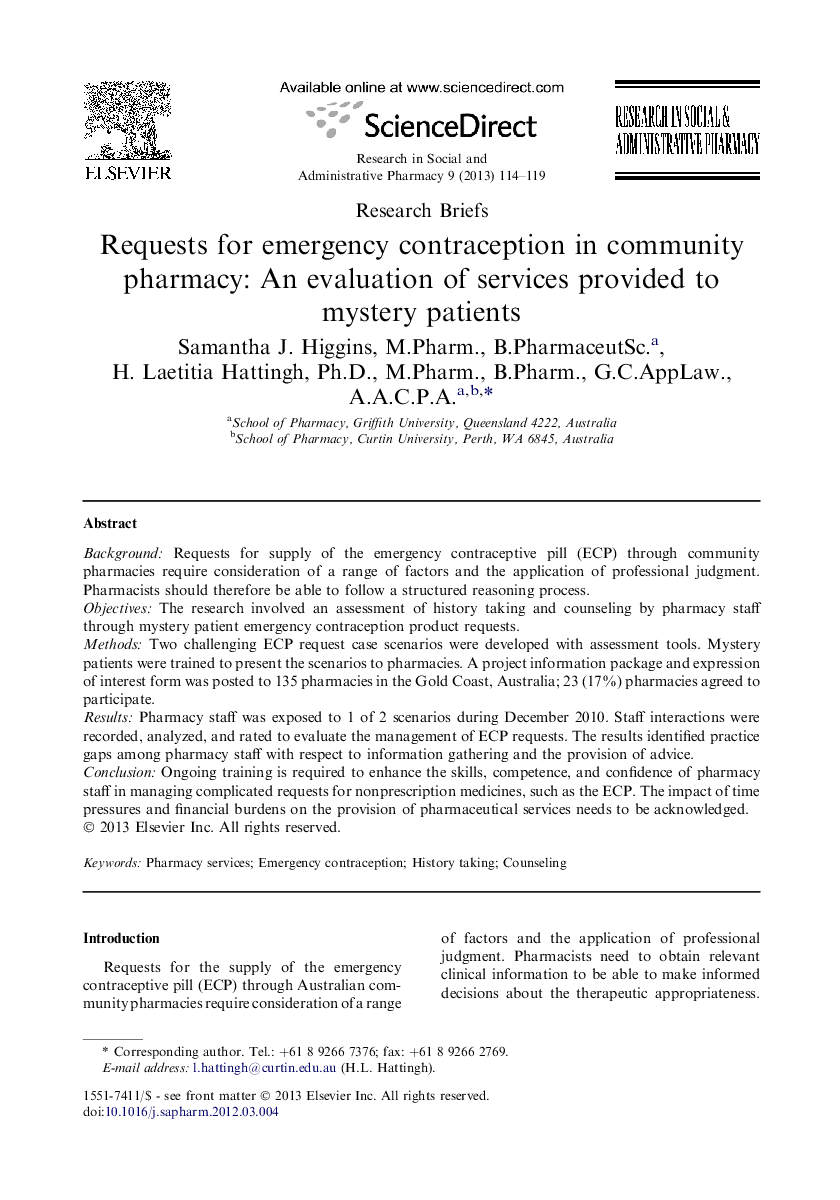| Article ID | Journal | Published Year | Pages | File Type |
|---|---|---|---|---|
| 2508641 | Research in Social and Administrative Pharmacy | 2013 | 6 Pages |
BackgroundRequests for supply of the emergency contraceptive pill (ECP) through community pharmacies require consideration of a range of factors and the application of professional judgment. Pharmacists should therefore be able to follow a structured reasoning process.ObjectivesThe research involved an assessment of history taking and counseling by pharmacy staff through mystery patient emergency contraception product requests.MethodsTwo challenging ECP request case scenarios were developed with assessment tools. Mystery patients were trained to present the scenarios to pharmacies. A project information package and expression of interest form was posted to 135 pharmacies in the Gold Coast, Australia; 23 (17%) pharmacies agreed to participate.ResultsPharmacy staff was exposed to 1 of 2 scenarios during December 2010. Staff interactions were recorded, analyzed, and rated to evaluate the management of ECP requests. The results identified practice gaps among pharmacy staff with respect to information gathering and the provision of advice.ConclusionOngoing training is required to enhance the skills, competence, and confidence of pharmacy staff in managing complicated requests for nonprescription medicines, such as the ECP. The impact of time pressures and financial burdens on the provision of pharmaceutical services needs to be acknowledged.
